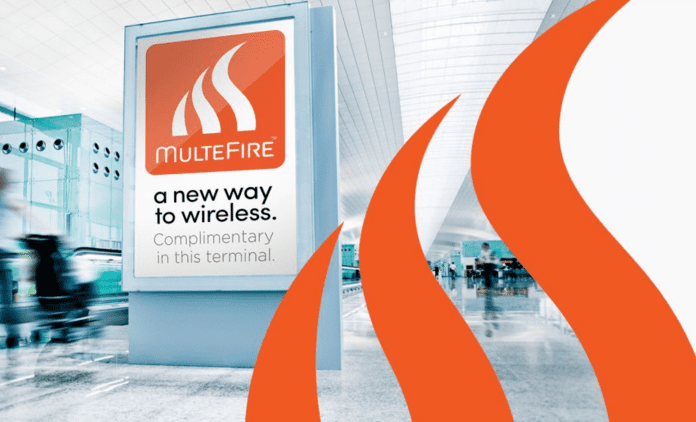The MulteFire Alliance has announced the launch of its MulteFire 1.9 GHz certification programme, to ensure devices conform with its MulteFire 1.1 specification.
The 1.9 GHz certification will test eNodeB devices in the 1.9 GHz band in Japan, verifying that devices can effectively interoperate and communicate via LTE. The programme is open to MulteFire Alliance members. Devices that pass certification may use the “MulteFire Certified” logo and certification mark in their marketing.
Mazen Chmaytelli, president of the MulteFire Alliance, described the certification, which focused on the Japanese market only, as a “critical step” in the development of standalone LTE-based wireless networks operating in unlicensed and shared spectrum bands.
“We’re excited to officially begin certification in Japan and have plans to expand the programme to enable certification of MulteFire devices to additional geographic regions,” he said.
The alliance’s 1.1 specification, which added support for the 1.9 GHz band, takes advantage of the considerable device ecosystem already in 3GPP Band 39.
Private or unlicensed LTE is synonymous with the shared 1.9 GHz band in Japan, also referred to as the ‘extended global platform, or sXGP. The Japanese Ministry of Internal Affairs & Communications opened up the band, which had been used for DECT-like private PHS (personal handy phone service) communications, for enterprise users to use for unlicensed sXGP LTE services.
There are reportedly 55,000 enterprises with around 5.5 million private enterprise users that will migrate to the sXGP service over the next four years. The service is also available for enterprise and industrial services.
Yoshiya Iribe, secretary general of the XGP Forum, commented: “The XGP Forum has long-supported the development of 1.9 GHz in Japan and we see this as the next evolutionary step in the continuing of the legacy LTE ecosystem.
“Vendors in Japan now have the ability to reduce system costs and achieve quick time-to-market. Only small modifications at the eNodeB side are needed to obtain co-existence with existing DECT and PHS systems in the same band. The 1.9 GHz Certification Program will give end users confidence that their devices will work.”
German product certification company DEKRA, a MulteFire Alliance member, will serve as the first authorised test lab for the MulteFire Alliance 1.9 GHz certification programme. DEKRA offers regulatory, conformance, interoperability, performance, usability, field, and other services for all the key wireless technologies.
Fernando Hardasmal, executive vice president and head of product Testing at DEKRA, said: “Being the first authorised test lab of MulteFire Alliance enhances our position as a leading provider of test services for private LTE. Since 2017, DEKRA has supported the MulteFire Alliance’s efforts in delivering MulteFire technology in unlicensed spectrum bands for private LTE networks.”
The MulteFire test lab is located in Yokohama, Japan.

